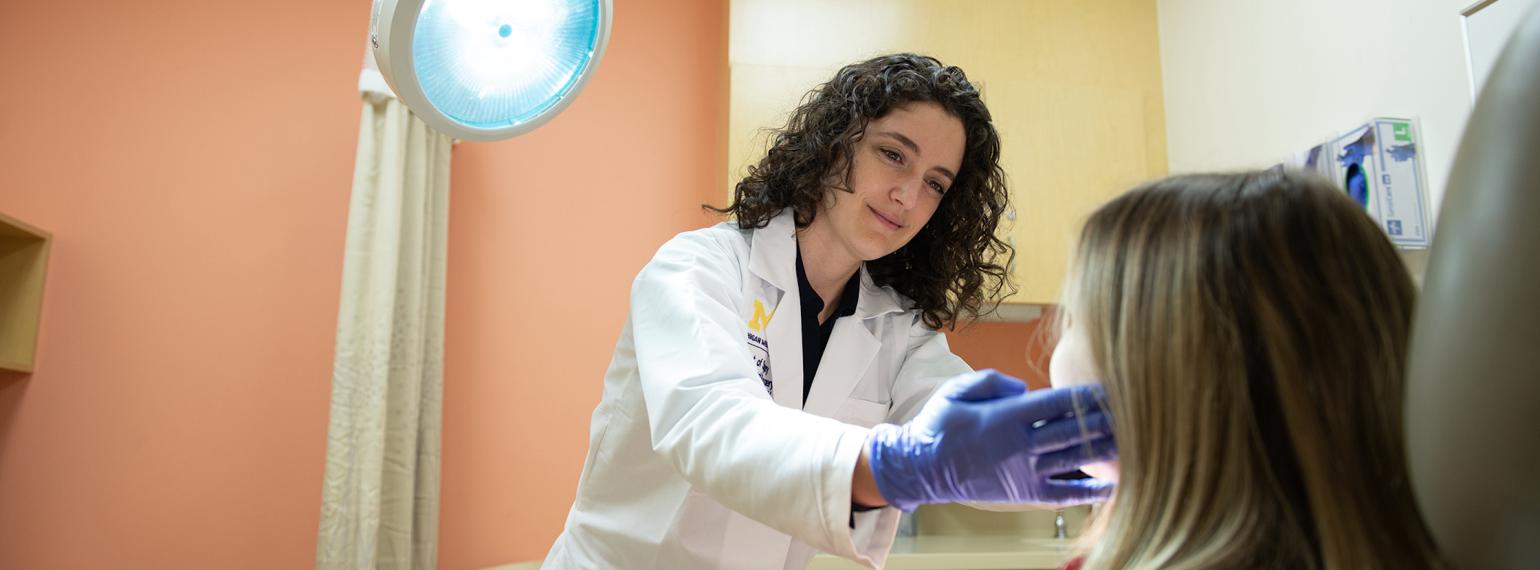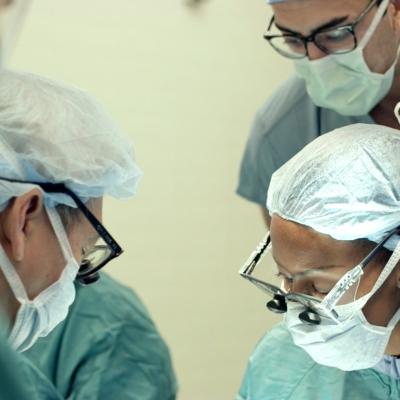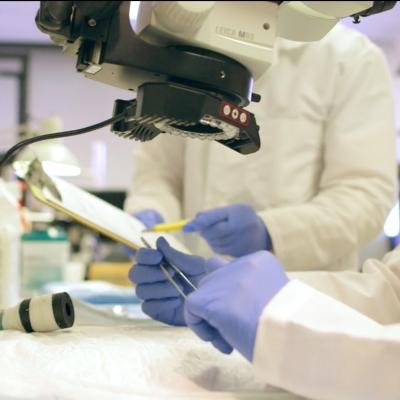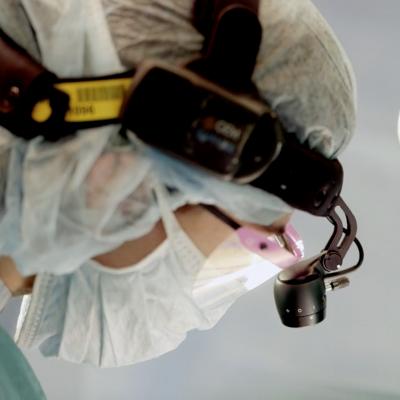The University of Michigan General Practice Residency Program is a 1-year postdoctoral training program that provides advanced training in clinical dentistry and applied basic and behavioral sciences.
Trainees can expect:
- Diverse clinical exposure: Michigan Medicine draws patients from around the region and the country, which means you’ll gain experience with all facets of hospital dentistry, including providing services to patients with cognitive and physical impairment, medically complex conditions, and underserved need.
- Balance of practice and study: Our program is designed as an advanced, multidisciplinary clinical experience, with a strong educational component that emphasizes the application and integration of the basic sciences as part of a problem-solving and evidence-based approach to care.
- Fruitful collaboration with other disciplines: Dentistry residents serve as integral members of clinical teams across the hospital, consulting on a wide variety of cases, from hematology/oncology to trauma and burn to transplant. Hospital Dentistry actively participates in the head and neck oncology tumor board and craniofacial surgery team meetings, and provides dental evaluation and treatment for patients undergoing radiation therapy, cardiac surgery, chemotherapy, and organ and bone marrow transplants.
University of Michigan School of Dentistry History
In 1875, a college of dental surgery was organized as part of The University of Michigan. This was the first dental school in the nation to become part of a state university. In 1927 its name was changed to the School of Dentistry. Both its longevity and its university relationship have enabled the School to become a leader in the dental profession.
The School has grown larger in student body and facilities over the years. In 1969 it entered a period of change and expansion greater than at any previous time in its history, with the addition of a new building attached to the original School of Dentistry Kellogg Building. The curriculum was also updated to reflect the immense growth in science and technology that impacted upon the dental profession.
At present, the School of Dentistry facility supports pre-doctoral and graduate programs in dentistry and dental hygiene, a year-around postgraduate education program, a Dental Research Institute, and an extensive dental library.
The residents may participate in continuing education programs, formal graduate courses and seminar series that takes place at the School of Dentistry. In addition, there are opportunities for the residents to interact with graduate students in other programs at the School of Dentistry, including Periodontics, Prosthodontics, Pediatric Dentistry, Orthodontics and Endodontics Programs. The residents will be given the opportunity to consult with any faculty member at the School of Dentistry, and individualized continuing education programs can be arranged with faculty.
University Medical Center History
The University of Michigan Medical Center was established in 1850. The new University Hospital, renamed ‘The University of Michigan Health Systems’, which opened February 14, 1986, currently contains 913 beds and includes three hospitals, approximately 30 health centers and 120 outpatient clinics. These all offer the latest technology and equipment along with a pleasing and comfortable environment. The University Hospital is a Level 1 Trauma Center. Face trauma call is shared by Plastic Surgery, Otolaryngology and Oral and Maxillofacial Surgery.
The Oral and Maxillofacial Surgery/Hospital Dentistry outpatient clinic is located on the second floor of the Med Inn Building. The Med Inn affords accommodations for the families of patients as well as the Sleep Disorders Clinic. The Towsley Center for Continuing Medical Education supports the learning environment. The Oral and Maxillofacial Surgery/Hospital Dentistry faculty offices are located on the first floor of the Towsley Center.




